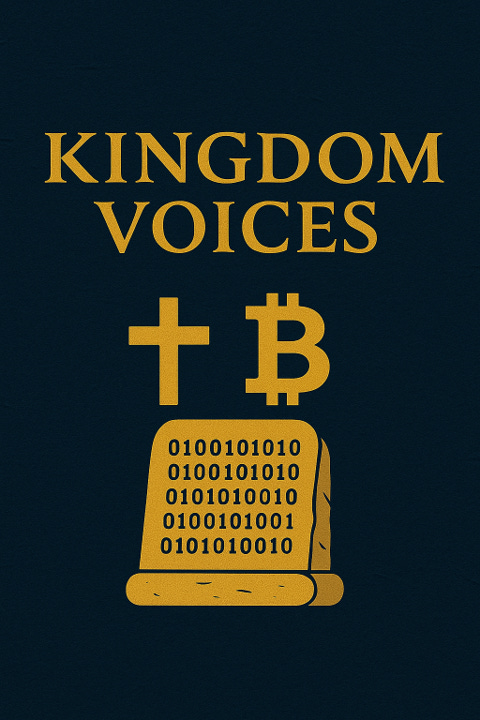Kingdom Voices | Proof-of-Work and the Moral Law
Kingdom Voices is a fellowship stewarded by Jack Raney
Kingdom Voices is a series of reflections calling a generation to see money, work, and creation through the lens of divine order stewarded by Jack Raney.
“Jack’s diligence, curiosity, and devotion to Kingdom truth are emblematic of what Kingdom Bitcoin stands for, restoring discipline, integrity, and faith to the way we build and steward creation.” - Jeff HasselmanEvery society has wrestled with a simple question: How do we know what is true and valuable?
For most of history, truth was enforced by authority—kings, priests, governments, and later banks. But in 2009, a new system appeared that replaced authority with physics. Bitcoin’s proof-of-work mechanism doesn’t ask us to believe anyone. It asks us to recognize effort.
In Bitcoin, new coins and verified transactions don’t come from promises or permission. They come from energy. Around the world, powerful computers compete to solve mathematical puzzles that require real electricity and real time. The moment one succeeds, its work is broadcast to the network and recorded permanently. This is called proof-of-work — literally, proof that energy was burned to produce something true.
It’s easy to think of this as just a technical process, but it’s also a moral one. Proof-of-work encodes an ancient law: you reap what you sow. Value arises only through effort and sacrifice. You cannot print Bitcoin out of thin air. You must give something up — electricity, computation, time — to receive a reward. That act of expenditure is what gives each coin its weight.
In this sense, Bitcoin links digital value to physical reality. The electrons flowing through mining machines are the modern equivalent of sweat on a farmer’s brow. Work transforms chaos into order, energy into truth. Each mined block is a receipt of honesty, evidence that someone somewhere paid a cost to secure the network for everyone else.
This has deep ethical implications. Our current financial systems often separate value from responsibility. Money can be created by keystrokes or political decree. Debts can multiply faster than the goods and services they represent. Proof-of-work refuses to play that game. It insists that creation must be backed by contribution, that there is no reward without sacrifice. In doing so, it quietly restores a kind of moral balance to economics.
Bitcoin’s process is slow, deliberate, and humbling. Each block appears roughly every ten minutes, no matter how impatient we grow. The network cannot be rushed or bribed; it listens only to the language of energy. This rhythm trains patience. It teaches that the path to lasting value is not through speculation or manipulation, but through consistent work aligned with reality.
At its core, proof-of-work mirrors a spiritual truth as old as humanity: redemption comes through effort. Whether in faith, art, or personal growth, sincerity is proven not by words but by what we’re willing to give. Bitcoin captures that same principle in digital form. Its ledger becomes a monument to human exertion — a record of sacrifice turned into enduring value.
In Bitcoin, truth quite literally emerges through fire — through the burning of energy that proves sincerity. It’s not merely code securing a network; it’s a reminder that the universe honors honest work, and that every lasting creation, from civilizations to currencies, must be paid for in energy first.
Next → Money, Energy, and the Return of Sacred Time
Behind that energy lies something even deeper — a question of spirit, intention, and time itself.


